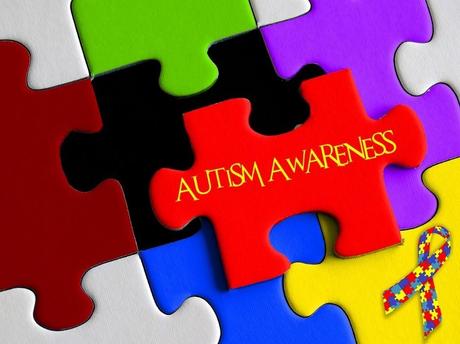You might have heard about autism before – it is a neurological developmental condition which means that people affected by autism – their brains develop differently. Some parts of their brains develop faster, whereas other parts develop slower.
The latest statistics on autism show at least one out of 44 kids is diagnosed with autism and boys are more likely to get diagnosed with autism than girls.
Autism affects every person differently – so, if you have met one person with autism on the wide spectrum of autism, you really only have met one person with autism on the wide spectrum of autism. From the perspective of an autistic person, it might look like you are either doing too much or doing not enough – or both.
In other words, gifts in one area of one’s skill set, such as high IQ, are accompanied by other serious challenges in other areas, such as a delay in language skills.
Here are some interesting facts about autism that everyone should know:
Autism Exists on a Wide Spectrum
An interesting thing to know about autism is that it is not a linear scale – it is a spectrum. One of the greatest misconceptions that people have about autism is that autism is on a linear scale. No one is more or less autistic. And no one is higher or lower functioning. Autism affects people in different ways, which is why everyone with autism has different support needs.

The ICD levels (1, 2, and 3) refer to the support level an autistic person needs – not their ability to function if their needed support is in place.
It is essential to elaborate here that if it is stated that one experiences mild autism, it is not referring to the person but to the support group, which can be the affected person’s family, spouse, and friends who experience the autism mildly.
How are Autistic People Different from Others?
Autistic people are different from people who have no autism in three main areas. When it comes to the area of focus and attention, autistic people see and perceive the world differently. Regarding the area of sensory input, the sensory sensitivities of autistic people differ in a way that they feel the world differently.
Lastly, the area of information processing is different for autistic people in a way that they connect with the world differently. People Outsiders might never know how hard the person affected with autism might have had to work to get to the support level (ICD) they are.
Autistic People Can Hide their Autism
From a very young age, the attitude and behavior of society teaches autistic people the lesson that being different is a bad thing, which is why autistic people often hide their autistic traits. They do so in response to their basic survival instinct that is ingrained in every human being. Masking and camouflaging are essential for avoiding society’s ridicule.

When autistic people appear normal on the outside, it is never because their autism has stopped, but mainly because they no longer allow the world to see it. That said, there is no such thing as “a little bit autistic.” In other words, having some autistic traits doesn’t simply make one “a little bit” autistic any more than being sad from time to time makes one clinically depressed.
Autism Affects Every Aspect of Life (For People with Autism)
Autism affects every part of the life of an autistic person – not just one or two areas. However, no two autistic people are the same as each other. As mentioned before, autism exists on a wide spectrum, which makes autistic people incredibly diverse.

The one thing that connects autistic people is the mutual experience of being the odd one out. You can come across autistic people of every age, gender, culture, and profession. The knowledge that one is autistic tells you only one thing – they don’t fit into a box, and therefore one can challenge all assumptions about them.
No One Can Grow Out of Autism
The thing about autism is that no one grows out of autism; rather, it is the other way around – people with autism learn to grow into autism. Autistic people learn and grow just like everyone else. A very common misconception about autism is that one can grow out of it – the truth is that you are born with autism and die with autism.
The only reason that people, especially children, go through therapy is that they learn life skills to cope with the general society that is mostly made of non-autistic people. Subsequently, it might look like people have “grown out of autism,” but the truth is that they have learned to cope with autism so well that it appears as if they don’t have autism anymore.
Men vs. Women Autism
An interesting misconception about autism is that most people believe that autism can be diagnosed from one’s childhood and that it is hard to diagnose adults with autism. It is believed that many adults have autism and don’t have it diagnosed, especially women with autism.
Despite the fact that autism is not an illness, it is recommended to have a diagnosis if one suspects that they could potentially be on the autism spectrum. This is specifically important for learning the coping mechanism of different social challenges that are a natural part of autism.
It is estimated that more men are diagnosed with autism than women – one contributing factor to this would be that women are better at camouflaging their autism than men, especially in a social situation, which is why women are more likely to remain undiagnosed than their male counterparts.
The Takeaway
If this is the first time you have come to know about autism, or if your loved one has autism, you might have already established a better understanding of autism. You know that autism is neither a disease nor something bad that is incurable.
Autism is simply a different way of perceiving the world in general. An autistic person might lack in certain areas but excel in others. For instance, they might have a higher IQ, but they might find it difficult to cope with busy surroundings.
